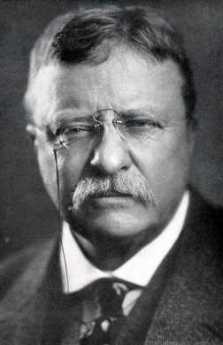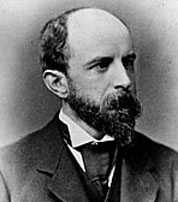Related Topics
Franklin Inn Club
Hidden in a back alley near the theaters, this little club is the center of the City's literary circle. It enjoys outstanding food in surroundings which suggest Samuel Johnson's club in London.
To Germantown, a Short Appreciation
Seven miles from the heart of Philadelphia, Germantown was once a separate town, the cultural center of Germans in America. Revolutionary battles were fought here, it was briefly the capital of the United States, and it still has an outstanding collection of schools and colleges.
Philadelphia Politics
Originally, politics had to do with the Proprietors, then the immigrants, then the King of England, then the establishment of the nation. Philadelphia first perfected the big-city political machine, which centers on bulk payments from utilities to the boss politician rather than small graft payments to individual office holders. More efficient that way.
Literary Philadelphia
Literary
Nature Preservation
Nature preservation and nature destruction are different parts of an eternal process.
Shakspere Society of Philadelphia
Maybe not the first, but the oldest Shakespeare club in America or possibly even the world, has kept minutes for over a hundred fifty years.
Harvard Progressives in Philadelphia

|
| Theodore Roosevelt |
The Progressive movement of the early 20th century is most concisely viewed as a futile social reaction to the vast changes in America caused by urbanization and industrialization after the Civil War. The transcontinental railroad threatened to destroy the wild, wild West, but the enduring environmental movement had overtones of even greater hostility toward industrialization, the cause of it all. In this sense, it joined forces with socialist and labor reform movements, in hating the newly rich, the spoilers, the Robber Barons. It briefly shared sympathies with anti-immigrant groups, while simultaneously expressing great sympathy with the decisions of the people, as opposed to corrupt politicians. There was a strong Calvinist streak in Progressivism, linked back to New England and Harvard its intellectual center. Regardless of any other contradiction, it reflected the viewpoint of Theodore Roosevelt. Teddy Roosevelt, "that damned cowboy" in the view of conservatives, did not invent the ideas of Progressivism, but he surely personified them, illustrated them in action. This confused turmoil of resentments was knocked off the front pages by a real threat to European civilization, the First World War. A terrifyingly well organized German war machine took the place of Robber Barons as a symbol of what was wrong with the world. The crash of 1929 and its ensuing long depression finally put an end to older controversies; it pushed the "reset" button.

|
| Henry Brooks Adams |
To understand the position of Philadelphia's upper crust during the Progressive era, four or five names need to be fleshed out. Owen Wister and J. William White would be important Philadelphia links to the Bostonians Henry Adams and Henry James. All of them were leading literary figures, and all of them were close friends of Teddy Roosevelt. Roosevelt, it might be recalled, was the author of thirty-four books. This little group of literary giants were members of the leading families of Boston, New York, and Philadelphia; what they said, mattered. Although today Owen Wister is mainly known as the author of The Virginian, the first of the cowboy stories of the Wild West, he was, in fact, an observer of the social climates of not only the West, but the deep South (Lady Baltimore ), and the East Coast ( Romney). Some idea of his political leanings can be gleaned from his presidency of the Immigrant Restriction Society, and the authorship of an article called Shall We Let the Cuckoos Crowd Us From Our Nest . Wister has been called "the best born and bred of all modern writers", referring to his descent
Originally published: Thursday, August 27, 2009; most-recently modified: Tuesday, May 21, 2019
| Posted by: Myrna | Jan 4, 2013 12:02 AM |